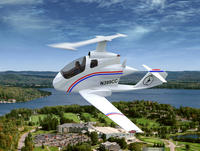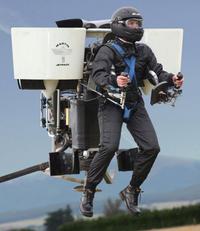-
Universal Detection to supply Singapore with biological detectors
Universal Detection Technology announced that earlier this week it had won a tender to supply Singapore’s Civil Defense Force with biological weapon detection equipment; under the deal Universal Detection, a developer of early-warning monitoring technologies, will provide equipment capable of detecting biological agents like Anthrax, Ricin, Botulinum, Plague, and Tularemia
-
-
SIGA wins $433 million contract to boost nation's smallpox defense
SIGA Technologies has won the latest round of its ongoing battle with Chimerix Inc. to supply government health officials with 1.7 million smallpox antiviral courses; on Monday, SIGA announced that Chimerix had withdrawn its protest over SIGA’s winning contract to supply the Biomedical Advanced Research and Development Authority (BARDA) with 1.7 million courses of ST-246, a smallpox antiviral, to boost the nation’s stockpiles
-
-
Cyberattacks spark cyber insurance boom
The recent spate of high profile cyberattacks on major corporations has sparked a rush for cyber security insurance; with companies and even local governments seeking financial protection from costly cyberattacks, insurance companies and analysts say demand has increased dramatically of late; some large companies have even taken out insurance policies worth as much as $200 million; local governments like Flathead County, Montana have also purchased cyber insurance
-
-
CACI International to acquire Pangia Technologies
Last Monday CACI said that they had reached a definitive agreement with Pangia, a software engineering firm that develops solutions for computer network operations, information assurance, mission systems, and IT infrastructure support; the move will expand CACI’s cybersecurity capabilities and bolster its presence among the U.S. intelligence community
-
-
New commuting method: Personal Aerial Vehicles

Researchers in Germany have an idea for solving the growing congestions in urban centers: a Personal Aerial Vehicles (PAVs) for traveling between homes and working places; the PAVs will fly at low altitude in urban environments, thus making it unnecessary to change current air-traffic control regulations
-
-
Digital Barriers acquires Zimiti, expands homeland security capabilities
Digital Barriers, an international homeland security and defense firm based in the United Kingdom, recently acquired Zimiti Ltd for £1.5 million, or roughly $2.5 million; the acquisition gives Digital Barriers access to Zimit’s Unattended Ground Sensor (UGS) technology which is aimed at expanding Digital Barriers’ reach in the including border control, critical infrastructure protection, and defense markets
-
-
Ceramic armor receives development prize
New ceramic armor has many advantages: currently the ceramic composite offers a 30 percent weight saving compared with an armor plate of the same size made of alumina ceramics and is 15 percent lighter than another widely used ceramic armor, silicon carbide; it also requires a much lower furnace temperature meaning less energy is used and less CO2 is produced in manufacture, making it an environmentally-friendly product
-
-
Xceedium wins award for securing DHS networks
On Tuesday, Xceedium Inc. won Infosecurity Products Guide magazine’s 2011 Best Customer Deployment Award; the award comes for Xceedium’s work in providing DHS with privileged access management solutions; to help DHS ensure that its networks are accessed by only approved users, Xceedium, a manufacturer of access control systems, has provided the agency with its GateKeeper system
-
-
Technology helps law enforcement predict threats -- and prepare for them
3i-MIND is the LEIM 2011 event to show its technology — a family of configurable solutions which help law enforcement agencies gather and analyze open-source and other intelligence in order to predict and prepare for threats; the technology uses deep-Web tools to access leads found only in social networks, chat rooms, and online forums
-
-
New powertrain improves fuel economy, adds hp Chevrolet Impala Police
GM says that a new 3.6L V-6 engine and a 6-speed automatic transmission achieves 302 hp and an estimated fuel economy of 17 mpg city and 27 mpg highway — a 3 mpg advantage over previous Impala models and 28 percent better than the Ford Crown Victoria; the 2012 Impala can accelerate from 0-60 mph in 6.6 seconds, based on GM engineering tests
-
-
Airlines change bag policy after soldiers' video goes viral

Delta Airlines charged U.S. military personnel for check in additional bags on a returning from a tour in Afghanistan, sparking outrage and leading three airlines to change their baggage fee policies for service members; Delta forced thirty-six reservists from Oklahoma to spend a total of more than $2,800 to check in their fourth bags; video of the incident quickly went viral and veterans sharply criticized Delta for charging the service members; Pentagon official played down the incident, saying soldiers’ travel orders stipulate that the government would reimburse soldiers for all excess bag fees
-
-
Emergency responders could have jetpacks by year's end

Emergency responders in New Zealand could soon be zipping around on personal jetpack; last month, Glenn Martin, an inventor based in New Zealand, successfully flew his jetpack up to a height of nearly 5,000 feet; Martin has been hard at work on the jetpack for the last thirty years and hopes to have his “jetski for the skies” commercially available within eighteen months; the jetpack is essentially two two-liter V4 engines strapped to a carbon fiber frame; the device is wingless and is controlled by two joysticks and can be flown with little pilot training; Martin says that the first people to use the device will be emergency responders conducting search and rescue missions
-
-
Anytime, anywhere communications across all devices enhances collaboration

Connecticut-based company offers anytime, anywhere communications across all types of devices — allowing public safety, emergency response, and select critical infrastructure entities to communicate and collaborate in the event of an emergency; the system may also be used by the military — in the field thousands of miles away — to alert, and provide information to in real time, domestic emergency agencies
-
-
General Dynamic wins $867 million DHS contract
Defense giant General Dynamics was awarded a seven year $867 million contract to build DHS’s new headquarters facility in Washington D.C.; under the contract, General Dynamics is tasked with developing an information technology system to transmit voice, video, and data throughout the facility; the company won the contract after DHS backed out of a $2.6 billion contract with Northrop Grumman for the same project last year; the new facility, located at the unused St. Elizabeth’s Hospital, will consolidate the thousands of DHS employees currently scattered among several different buildings
-
-
Disasters a boon to junk removal business
Damaging weather — tornadoes, floods, hurricanes — can be a boon for the junk removal business; the past two years have seen a sharp uptick in the number of natural disasters hitting populated areas; just this spring we have witnessed the deadliest tornado season in almost sixty years; floods have wiped out homes and lives in Mississippi, Vermont, and Manitoba; Australia recovered from massive flooding in Brisbane only to be hit with an earthquake in nearby Christchurch, New Zealand; one junk removal company sees a significant uptick in revenues
-
- All
- Regional
- Water
- Biometrics
- Borders/Immig
- Business
- Cybersecurity
- Detection
- Disasters
- Government
- Infrastructure
- International
- Public health
- Public Safety
- Communication interoperabillity
- Emergency services
- Emergency medical services
- Fire
- First response
- IEDs
- Law Enforcement
- Law Enforcement Technology
- Military technology
- Nonlethal weapons
- Nuclear weapons
- Personal protection equipment
- Police
- Notification /alert systems
- Situational awareness
- Weapons systems
- Sci-Tech
- Sector Reports
- Surveillance
- Transportation
Advertising & Marketing: advertise@newswirepubs.com
Editorial: editor@newswirepubs.com
General: info@newswirepubs.com
2010-2011 © News Wire Publications, LLC News Wire Publications, LLC
220 Old Country Road | Suite 200 | Mineola | New York | 11501
Permissions and Policies
Editorial: editor@newswirepubs.com
General: info@newswirepubs.com
2010-2011 © News Wire Publications, LLC News Wire Publications, LLC
220 Old Country Road | Suite 200 | Mineola | New York | 11501
Permissions and Policies
